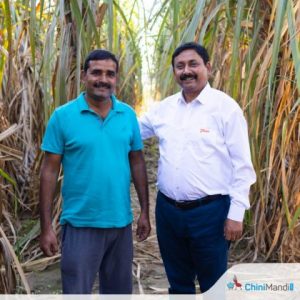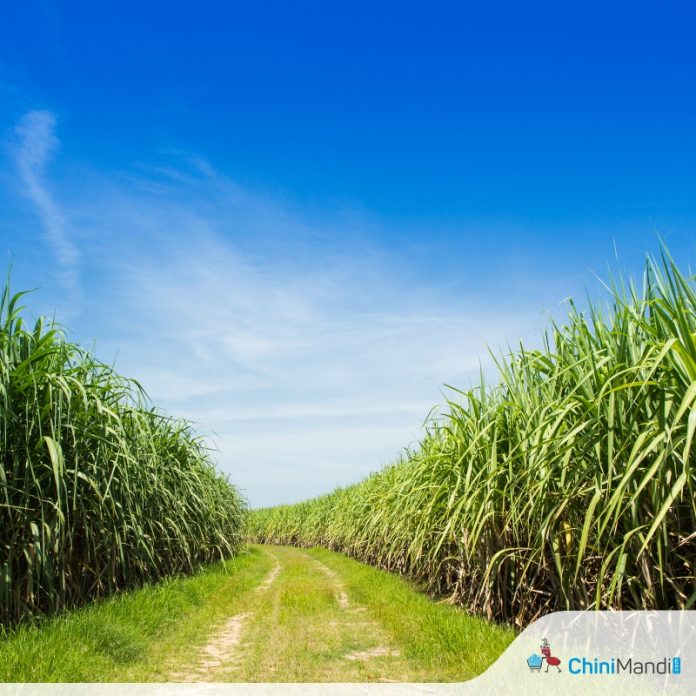With growing concerns of climate change and carbon emissions, governments across the globe including India are focusing on developing a sustainable economy. Since India is the second largest producer of Sugar, the industry is of paramount importance for the overall socio-economic growth of the country. As a crop, sugarcane is used not only to produce sugar but also to generate various co-products like bagasse, molasses, filter cake (commonly known as press mud) etc. which have economic value and can be used as feedstock to produce biofuels/bioenergy like power, bioethanol, biogas etc.
While the Government is taking various initiatives to promote sustainability, it is important for manufacturing industries like sugar to ensure they incorporate sustainable practices deep into their operations.
Steps to Ensure Sustainability
The Indian Government has undertaken several initiatives and policy measures to promote sustainable agriculture. These include improving soil health, nutrient management, water use efficiency, organic farming, etc. Advanced technologies like IoT, AI, GIS mapping, and precision farming are also being used to promote water management, climate-smart practices, and farmer education. Moreover, the Government supports the sugar industry through timely export schemes, sugar release quota mechanisms, and the Ethanol Blended Petrol (EBP) program, which further contributes to driving sustainability for the sugar industry.
Working in-line with the Government, Triveni Engineering & Industries Ltd (TEIL) is deeply committed to sustainability, integrating a variety of eco-friendly strategies and initiatives throughout its operations. The Company emphasizes energy efficiency, optimizes production processes, and incorporates environmentally friendly materials to minimize its environmental impact. TEIL is dedicated to environmental stewardship, continually assessing and implementing measures to reduce greenhouse gas emissions. By harnessing co-products as raw materials for other products, TEIL promotes a circular economy, allocating capital to reduce its carbon footprint and enhance energy efficiency. The Company also prioritizes the highest level of ethical and corporate governance standards, ensuring stringent compliance and business excellence.
Sustainable procurement is a key aspect of TEIL’s approach to integrating sustainability across its value chain. The Company maintains strong relationships with its vendors, partnering with them to enhance their sustainability efforts. TEIL employs a comprehensive sourcing strategy, selecting vendors based on sustainable requirements to align their performance goals with those of the Company. Efficient logistics arrangements and digital tools, such as GPS and geofencing, are deployed to track the movement of raw materials and reduce transportation-related emissions. TEIL also educates sugarcane farmers on soil fertility and the use of organic fertilizers, ensuring sustainable agricultural practices. Adherence to ISO 14001 standards further underscores TEIL’s commitment to sustainable operations.
The Company implements best practices to make sugarcane farming more sustainable for the long-term development of the industry. This includes promoting soil health through soil health cards to analyze ideal nutrient requirements, reducing unnecessary fertilizers, and adopting trash mulching practices to enrich organic content in the soil. Enhancing irrigation efficiency is another focus, aiming to reduce water and fertilizer consumption while improving soil health and lowering costs.
Integrated pest management techniques are employed, balancing economic viability with environmental sustainability by using natural methods and resorting to chemicals only when necessary. TEIL also promotes intercropping with grain legumes, mustard, maize, wheat, and other crops to optimize natural resources, stabilize crop yields, and enhance overall productivity. These practices not only contribute to sustainable agriculture but also improve the socio-economic status of farmers involved in sugarcane cultivation.

To minimize effluents, TEIL treats and recycles water for sugar and distillery processes, reducing groundwater extraction. In order to reduce effluents like spent wash, effective systems and equipment are employed including incineration boilers for Zero Liquid Discharge (ZLD) and the generation of Value-Added Products (VAP) like potash-rich ash. The Company has implemented rigorous measures to mitigate air pollution stemming from steam boilers, dust from unpaved access roads, and activities like sugar drying and packaging. This effort includes installing bag filters, electrostatic precipitators (ESPs), and wet scrubbers in boilers to ensure that air pollution remains well below regulatory norms.
In a nutshell, Indian sugar industry stands at a critical juncture where sustainable practices are necessary for future growth. By focusing on water conservation, renewable energy, and sustainable agriculture, the industry can pave the way for a greener future. These efforts reflect India’s broader commitment to sustainable development, ensuring that economic growth does not come at the expense of the environment. The proactive steps taken today will make the Indian sugar industry a model of sustainability, balancing economic benefits with environmental responsibility.










